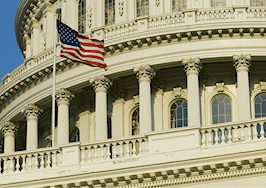The National Association of Realtors (NAR) on Tuesday delivered a letter of support in favor of a proposed U.S. Department of Labor rule that could potentially pave the way for the trade group to create an association health plan through which its self-employed Realtor members could receive more affordable medical coverage.
The rule, which would modify the legal definition of “employer” to include “working owners” — i.e., self-employed individuals with no employees — including thousands of real estate agents working as independent contractors, was proposed in early January, and Tuesday marked the end of a 60-day comment period. The Labor Department will now give feedback and could make a ruling as early as this summer.
“NAR has long documented the challenges of finding affordable health insurance coverage and historically the rate of uninsured members has ranged between 20 and 30 percent,” wrote NAR President Elizabeth Mendenhall in a 15-page letter addressed to Labor Secretary Alexander Acosta, echoing earlier support. “It is therefore critical that the Department of Labor support the needs of the real estate industry to have affordable health care options so these individuals can continue to focus their role on boosting America’s economic growth.”
If the proposed rule is approved under a provision of the Employee Retirement Income Security Act, hundreds of thousands of agents could qualify for health care coverage through association health plans, which allow small businesses or trade associations to pool resources in order to provide coverage at lower premiums. That means NAR may “finally be able offer health coverage through a fully-insured ‘large group’ or self-insured AHP,” the letter noted.
Currently, as many as nine out of 10 Realtors work as independent contractors and are forced to purchase insurance through individual markets, which often provide fewer choices at higher costs, according to experts with NAR.
As many as 46 percent of the National Association of Realtors’ 1.3 million members reported paying for their health insurance out of pocket while 32 percent said they were insured through a spouse, partner or family member, according to a profile of the group’s members from 2017. Only 3 percent said they were covered by an employer’s health plan, according to NAR.
Should the rule be approved — which would subsequently exempt association health plans from nationwide Affordable Care Act regulations — experts predict a flurry of legal challenges from state officials and insurance providers could further delay implementation.
Critics argue that passage of the rule could cause premiums through the Affordable Care Act markets to skyrocket because association health plans would draw largely from a younger workforce while leaving behind older individuals with more complicated medical needs.
Email Jotham Sederstrom













